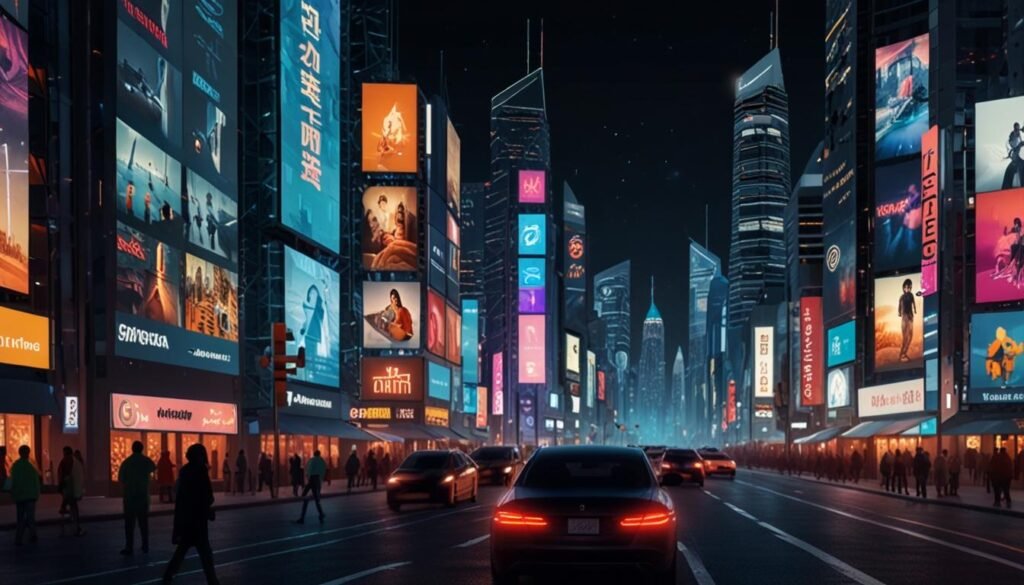A new report highlights imminent changes in the media landscape driven by AI, urging brands to adapt their strategies for enhanced consumer engagement and personalised experiences.
The media industry is on the cusp of a significant transformation, as highlighted in a comprehensive study entitled “Algorithmic Era of Media” conducted by Carat, dentsu X, and iProspect. The report projects substantial changes to be realised by 2025, driven primarily by the rapid integration of artificial intelligence (AI), which is expected to foster a fully addressable, shoppable, and accountable media landscape.
Prerna Mehrotra, Chief Client Officer and Practice President at dentsu Media APAC, emphasised the need for brands to develop media strategies that create memorable, personalised consumer experiences. These strategies should leverage the creator economy and establish interconnected ecosystems to uncover new growth areas. Will Swayne, dentsu’s Global Practice President, noted that the advent of the algorithmic era marks a shift in brand-consumer interactions, moving beyond mere experimental phases to generate real-world value.
The report outlines ten key media trends anticipated in the upcoming year:
-
AI’s Impact on Audience Consumption and Brand Interaction: AI is predicted to significantly alter the consumer landscape over the next decade, making digital interactions more accessible through technologies like generative AI. It is crucial for brands to maintain reliability and predictability while being mindful of AI’s environmental impact.
-
Enhancing the Media Value Chain with AI: Brands are expected to explore AI applications beyond platform solutions, tapping into AI’s potential across the media value chain. This encompasses dynamic scenario planning, utilising richer data pools for predictive insights, and performing real-time optimisation across media channels.
-
Maximising Micro-Moments: With 81% of consumers valuing surprises and uniqueness, brands are encouraged to make use of micro-moment opportunities to engage consumers seamlessly within their daily routines, ensuring content and data are accessible and consistent.
-
The Power of Niche Audiences: As niche communities grow, brands are advised to harness audience data from platforms like Reddit and Netflix, utilising AI to refine their media presence and effectively reach these specialised segments.
-
Opportunities in Connected Television: With connected TV advertising spend predicted to grow significantly, brands need to stay informed about emerging advertising opportunities in developing areas like live sports.
-
The Importance of High-Quality Creatives: Quality creatives are expected to become crucial, with a shift towards investing in high-impact, optimised content to maximise media investment.
-
Retail’s Influence on Media: Retailers may increasingly dominate the media market, leveraging first-party shopper data to become central players in an algorithm-driven media environment.
-
Value of Strategic Partnerships: Companies should explore partnerships that provide mutual benefits in terms of data, content, and distribution to enhance growth and consumer experience.
-
Supply Chain Investments: Brands need to safeguard their media investments against fraud and ensure sustainability by refining their media supply chains to enhance overall media quality.
-
AI and the Digital Divide: Emerging AI technologies require significant computational resources, potentially widening the digital divide. As technology turns into a more politically driven issue, advertisers might play a pivotal role in ensuring news accessibility for economically disadvantaged groups.
This transformation of the media landscape is expected to be characterised by heightened consumer expectation for reliability and the leveraging of AI across various media facets. With the continued evolution of digital experiences and advertising strategies, businesses are urged to remain agile and innovative to navigate these emerging trends effectively as they head into 2025.
Source: Noah Wire Services
















